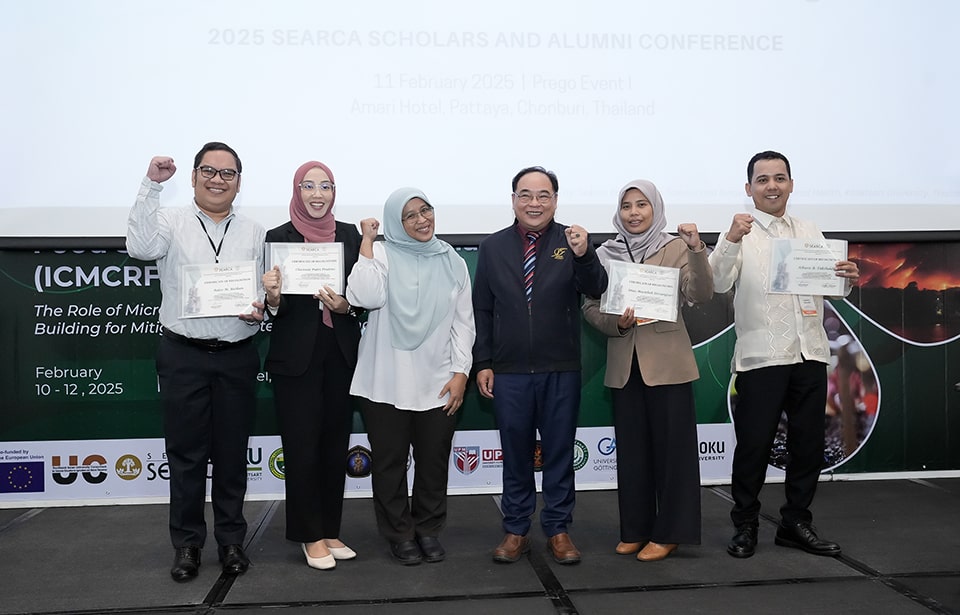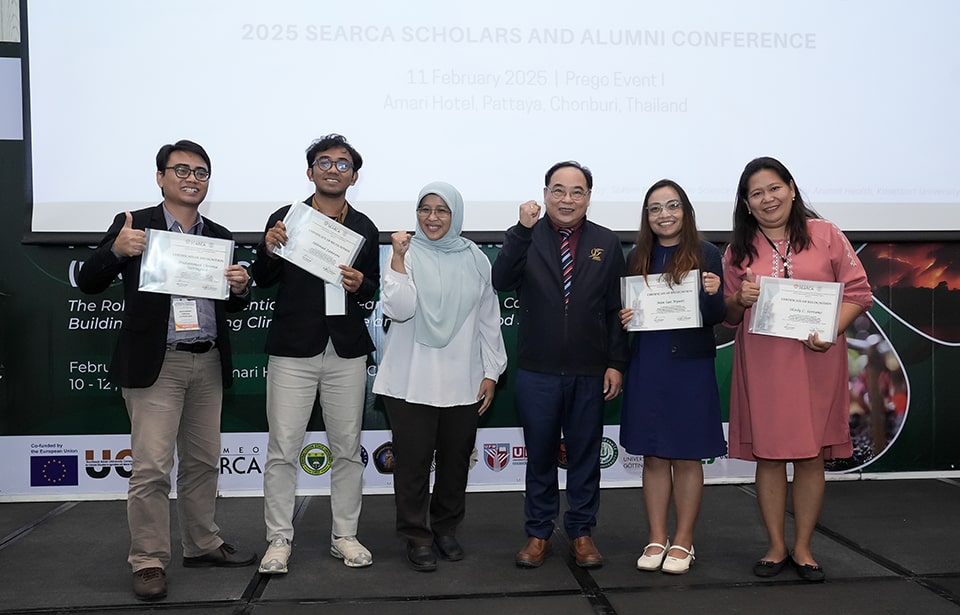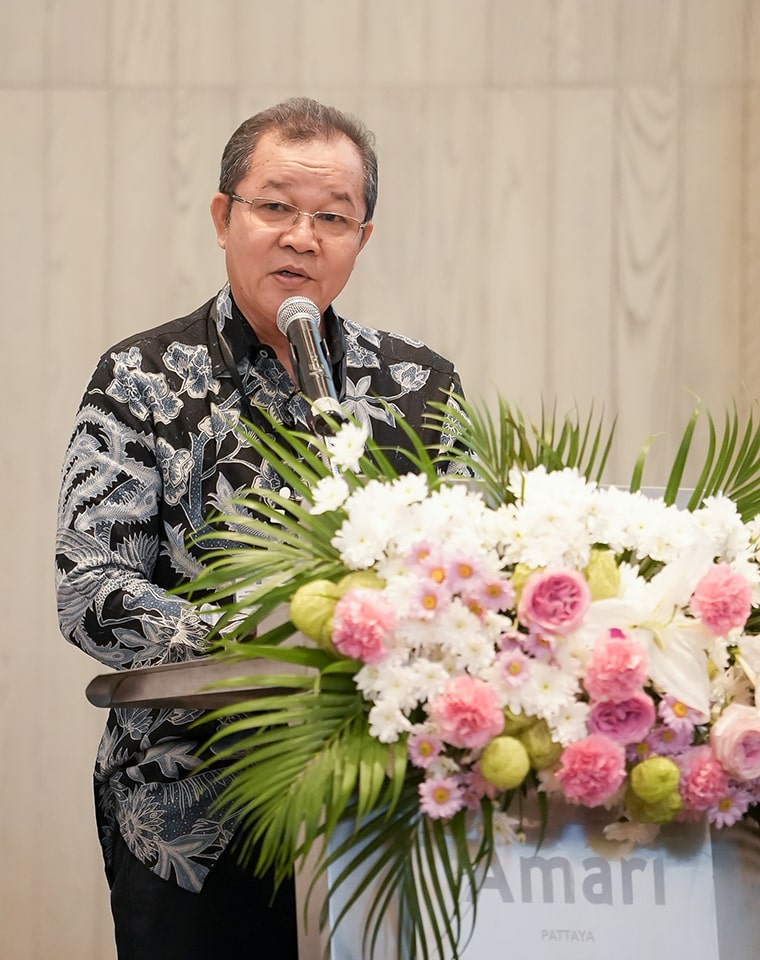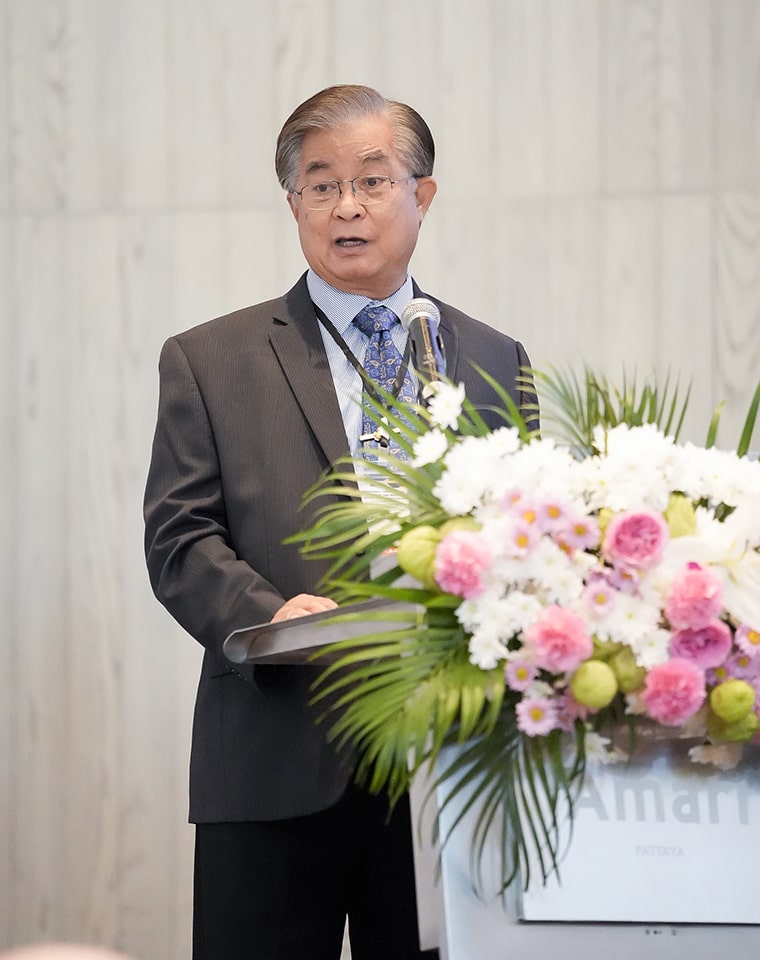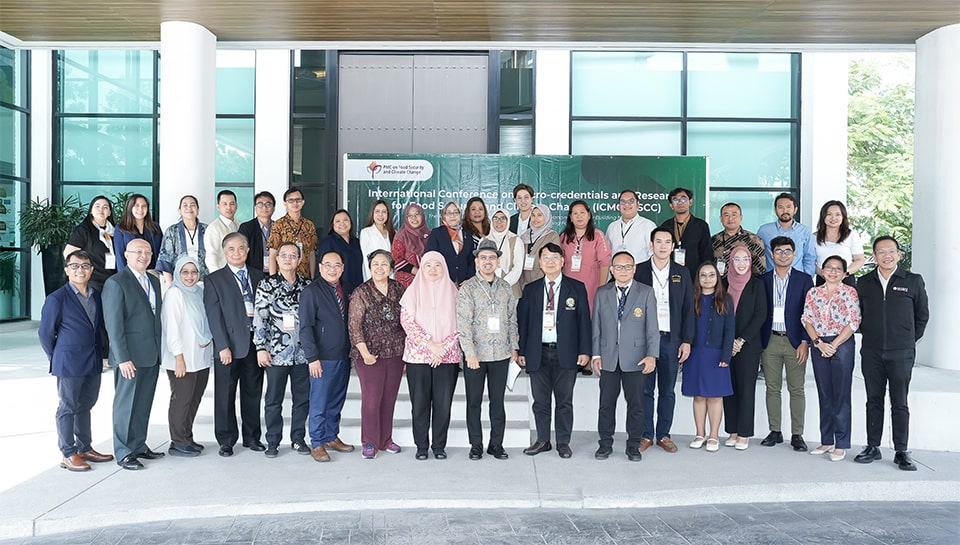 Delegates of the 2025 SEARCA Scholars and Alumni Conference (Photo by Kasetsart University)
Delegates of the 2025 SEARCA Scholars and Alumni Conference (Photo by Kasetsart University)
Chonburi Province, Thailand – The Southeast Asian Regional Center for Graduate Study and Research in Agriculture (SEARCA) partnered with the Postgraduate Micro-Credentials in Food Security and Climate Change (PMCFSCC) Project and the Regional SEARCA Alumni Association (RSAA) to conduct the 2025 SEARCA Scholars and Alumni Conference. Following the theme "Innovation Meets Education: Building Pathways for Food Security and Resilience to Climate Change," the event presented the research studies of 13 SEARCA scholars and alumni for the Academic Year 2024–25. The conference was conducted on 11 February 2025, at the Amari Hotel in Pattaya, Chonburi Province, Thailand, back-to-back with the ERASMUS+-funded project PMCFSCC's International Conference on Micro-credentials and Research for Food Security and Climate Change from 10–12 February 2025.
The SEARCA Scholars and Alumni Conference is a platform for dialogue and collaboration among scholars, alumni, and partners. Together with the International Development Research Centre (IDRC) of Canada, the Center organized three conferences annually from 2013 to 2015 under its joint scholarship program. In 2023, the event was revived by SEARCA's Education and Collective Learning Department (ECLD) as an annual gathering for stakeholders of its graduate study program.
Emphasizing education as a driver of change, this year's event showcased research results, successful initiatives, and policies to equip communities to tackle climate challenges and develop resilient, sustainable food systems. The conference was structured around three key thematic sub-sessions: Agriculture and Food Security, Climate Change and Ecosystem Management, and Innovative Technologies and Sustainable Practices.
Alongside the 2025 conference, SEARCA held the SEARCAMustahan, a dedicated check-in event for scholars and alumni. These initiatives highlight the Center's commitment to promoting a supportive and collaborative community for its scholars and alumni.
(L-R) Presenters for the sub-sessions on Agriculture and Food Security, Climate Change and Ecosystem Management, and Innovative Technologies and Sustainable Practices (Photos by Kasetsart University)
Dr. Glenn B. Gregorio, SEARCA Center Director, officially opened the conference. Highlighting insights from a recent problem-based learning (PBL) conference in Japan, Dr. Gregorio emphasized the synergy between micro-credentials (MCs) and PBL in modern education. He explained that integrating these approaches promotes flexible, skills-based, and experiential learning, ensuring students and professionals are equipped with industry-relevant competencies to tackle real-world challenges. Dr. Gregorio stressed that while climate change poses significant threats to food systems, research and education remain powerful tools for transformation. He also underscored SEARCA's continued commitment through programs such as the Seed Fund for Research and Training (SFRT) and Grants for Research towards Agricultural Innovative Solutions (GRAINS), which ensure education and research remain relevant, responsive, and impactful for farming communities. Dr. Gregorio further challenged participants to take concrete action, reinforcing that "IMPACT begins with 'I' because change starts with us, ends with 'ACT' because action drives transformation, and at its core, 'P' stands for partnership because the real impact is only possible when people work together."
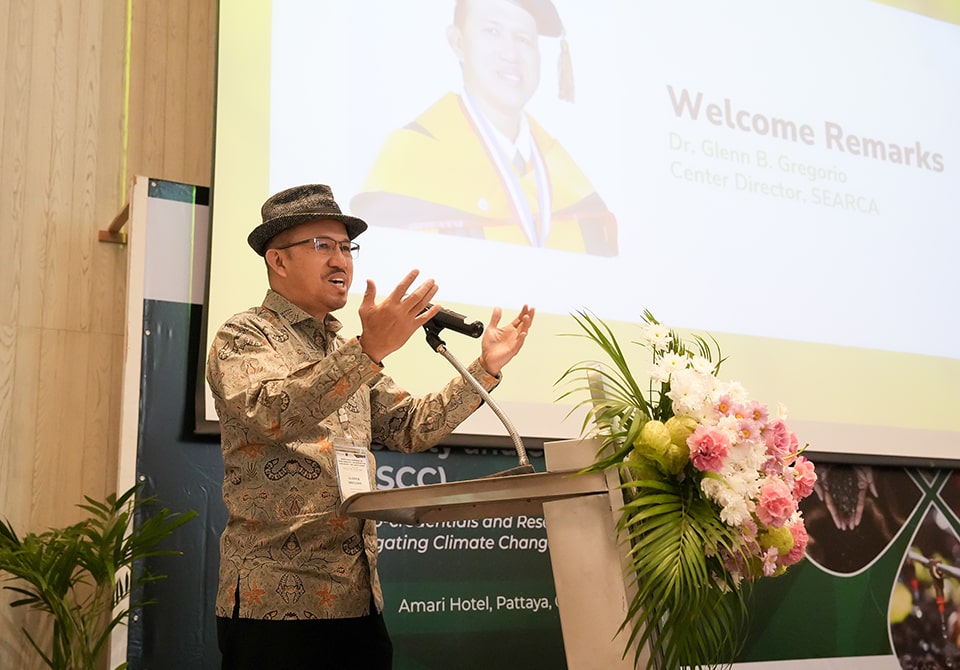 Dr. Glenn B. Gregorio opens the conference. (Photo by Kasetsart University)
Dr. Glenn B. Gregorio opens the conference. (Photo by Kasetsart University)
Dr. Asdi Agustar, President of the Regional SEARCA Alumni Association (RSAA) and Professor at Universitas Andalas, Indonesia, welcomed the participants on behalf of the RSAA with an inspiring message on the power of collaboration, innovation, and lifelong learning. Prof. Dr. Agustar emphasized the importance of knowledge exchange in shaping the future of food security and climate resilience. Beyond discussions, he encouraged participants to engage actively in networking, recognizing the value of building professional connections among scholars and alumni. He highlighted that the conference is not only an avenue for learning but also a platform for collaboration and for strengthening SEARCA's alumni network.
SEARCA also invited Dr. Delfin J. Ganapin, Jr., an Outstanding SEARCA Scholarship Alumnus and Former Global Manager of the UN Global Environment Facility Small Grants Program, who delivered the keynote message on the urgent and complex challenges of food security in the face of climate change. His emphasis on interdisciplinary research, policy advocacy, and institutional development underscores the importance of not only understanding climate change's impact on food systems but also taking concrete actions that empower vulnerable communities. The call for farmer-researcher capacity building, indigenous knowledge integration, rights-based approaches, and innovative partnerships resonates deeply with SEARCA's mission.
(L-R) Prof. Dr. Asdi Agustar and Dr. Delfin J. Ganapin, Jr. deliver their messages. (Photos by Kasetsart University)
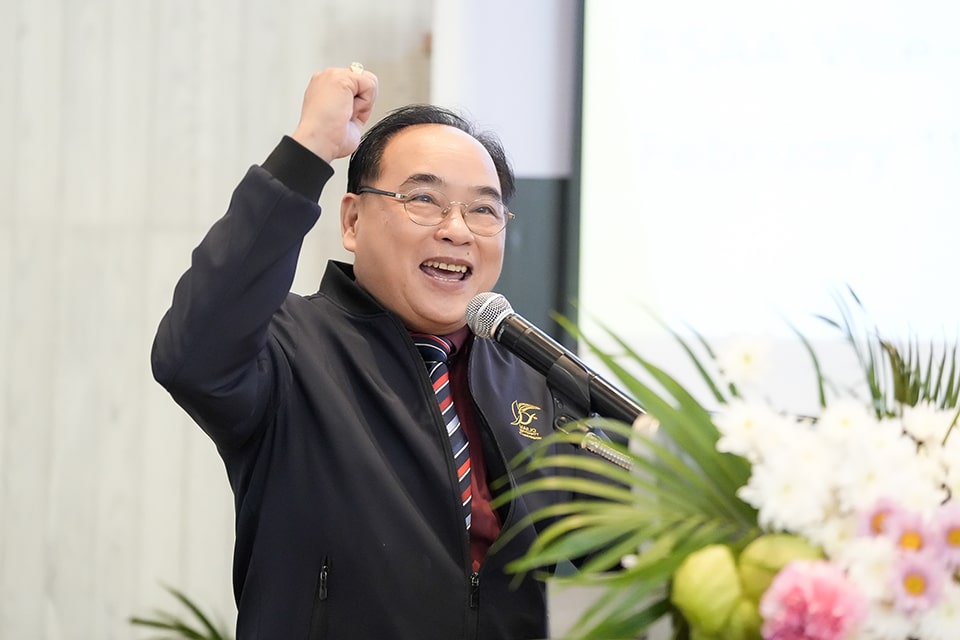 Assoc. Prof. Dr. Weerapon Thongma wraps up the conference with a call to action. (Photo by Kasetsart University)
Assoc. Prof. Dr. Weerapon Thongma wraps up the conference with a call to action. (Photo by Kasetsart University)
The conference concluded with a resounding commitment to transformative action. Assoc. Prof. Dr. Weerapon Thongma, Vice President of the Regional SEARCA Alumni Association (RSAA) and President of Maejo University underscored, rallied the attendees to respond to the pressing challenges of the time, which demand innovative ideas, strategic reforms, and a collective willingness to push boundaries. The insights shared, from AI-driven crop insurance to the effects of climate change, to strategies for women's empowerment in agriculture, serve as a catalyst for meaningful change. Now, the responsibility lies with each participant to turn discussions into impact, creating pathways where research meets real-world application. By thinking globally and acting locally, we can bridge knowledge with practice and drive sustainable progress for future generations, concluded Dr. Thongma.
